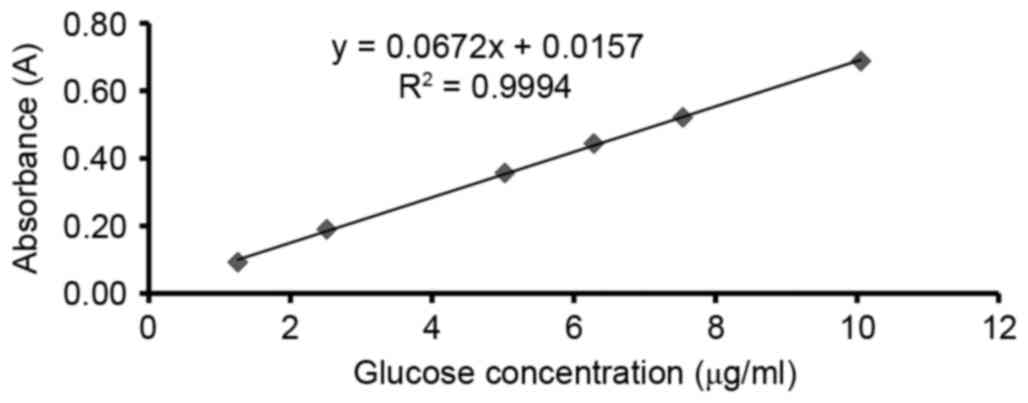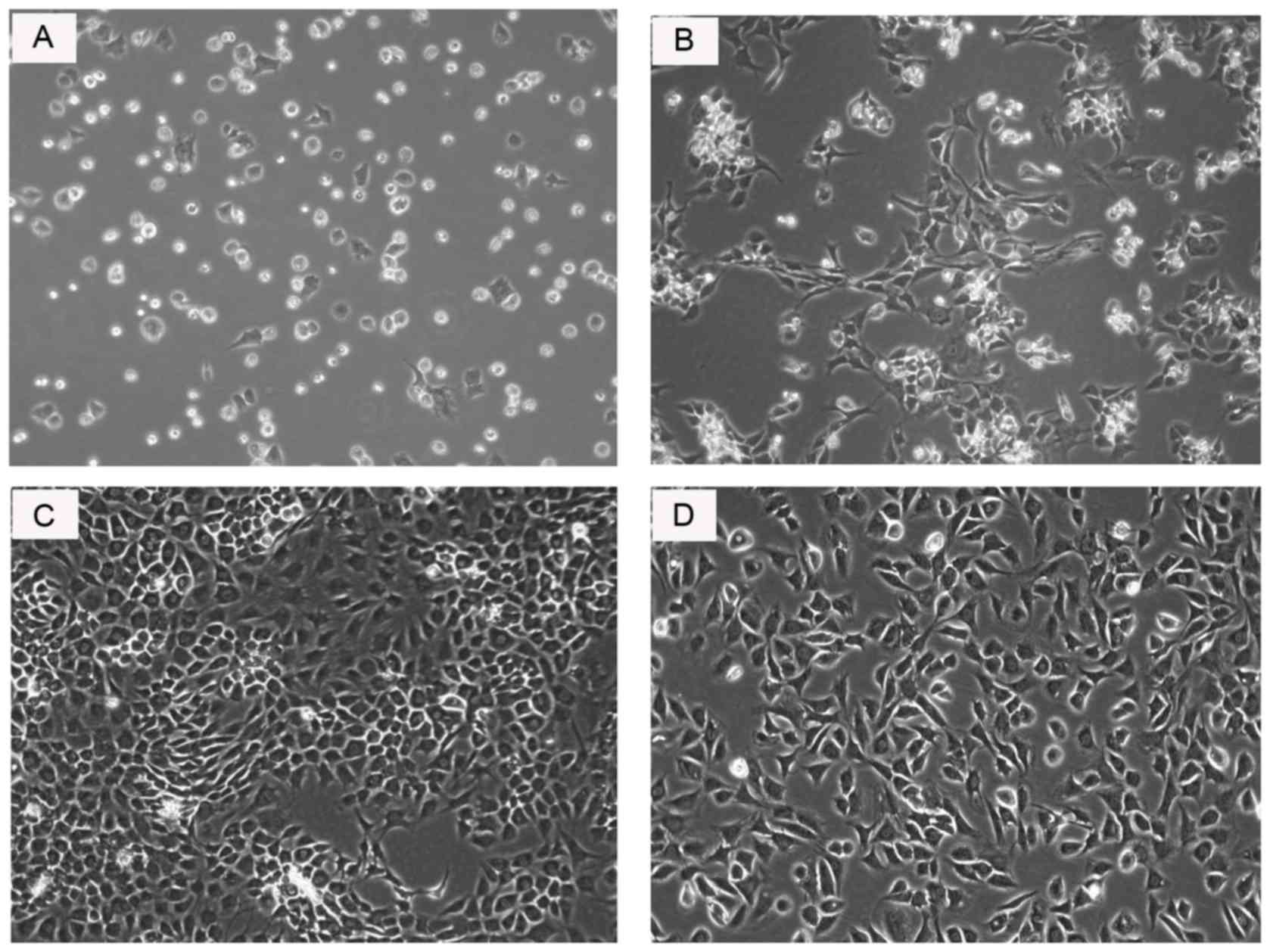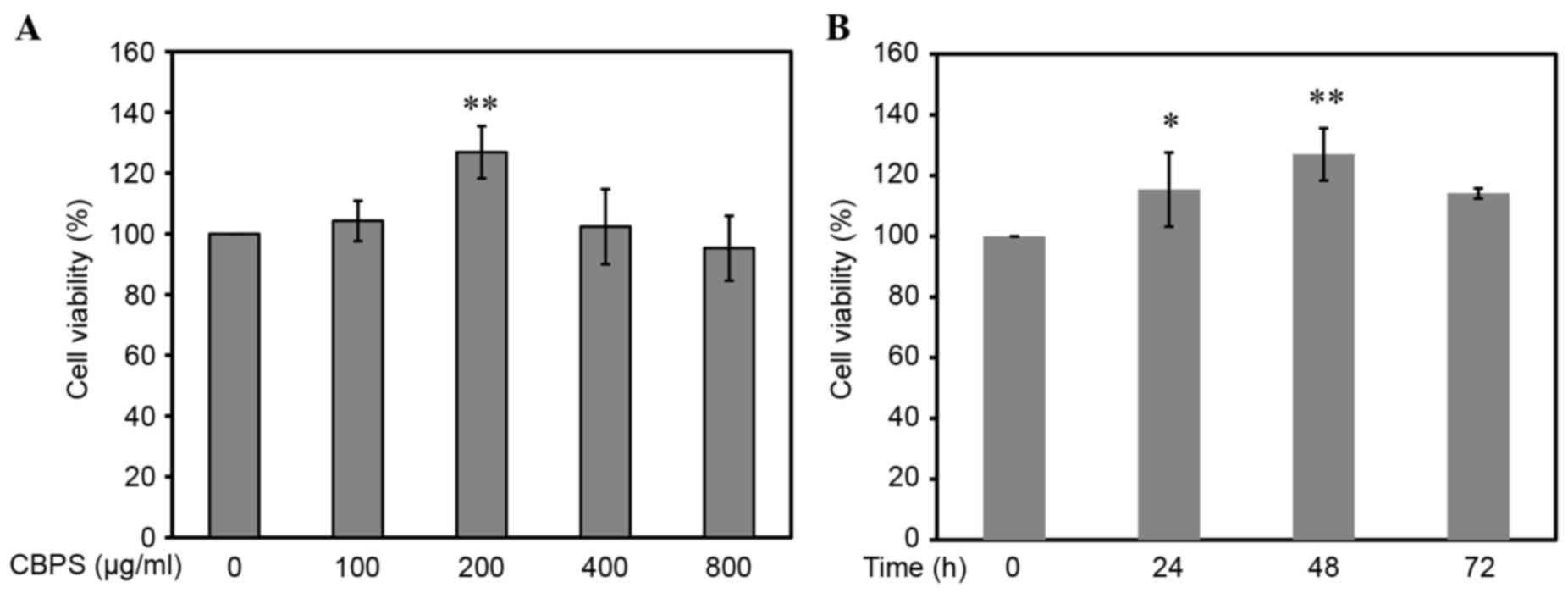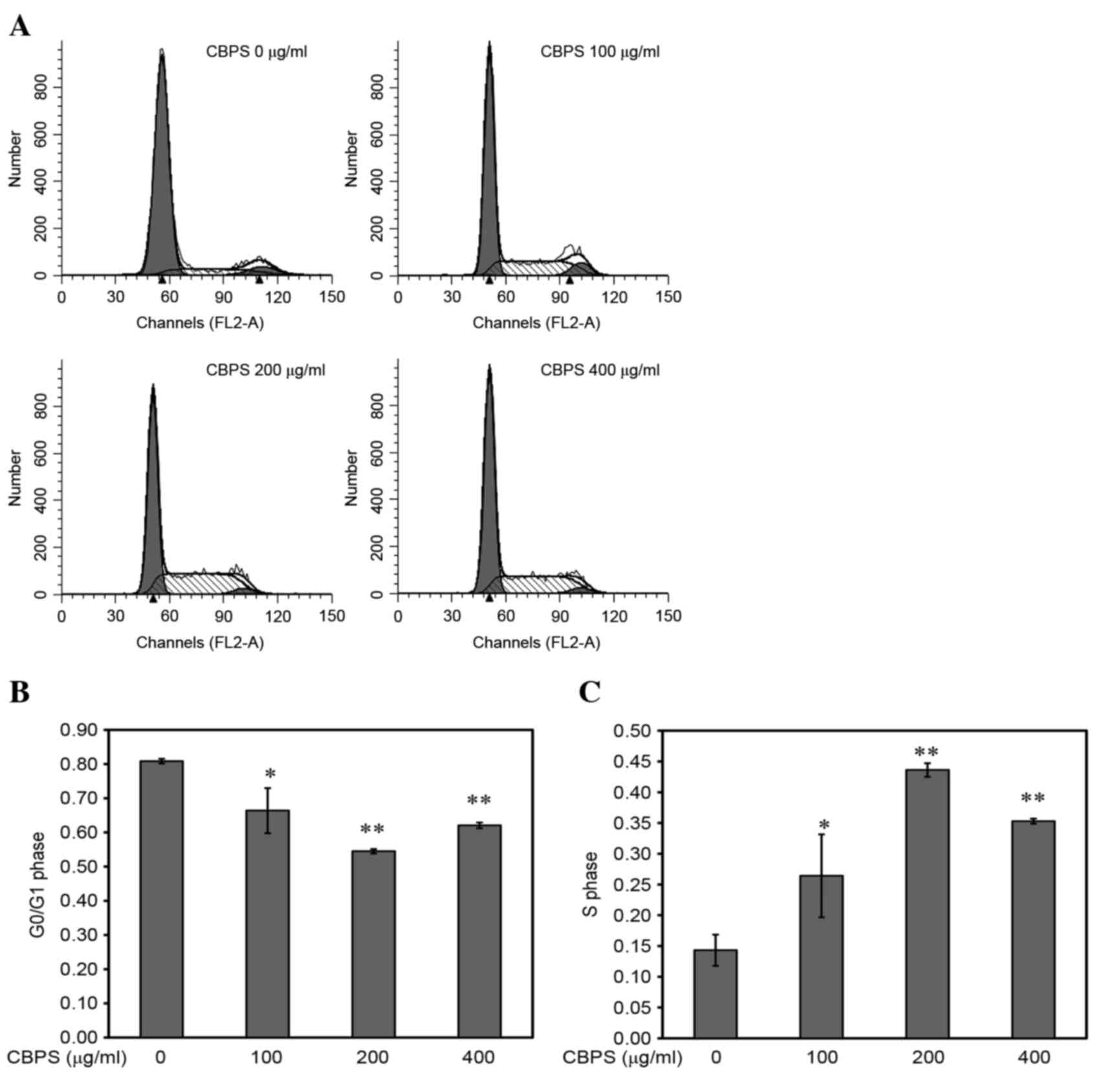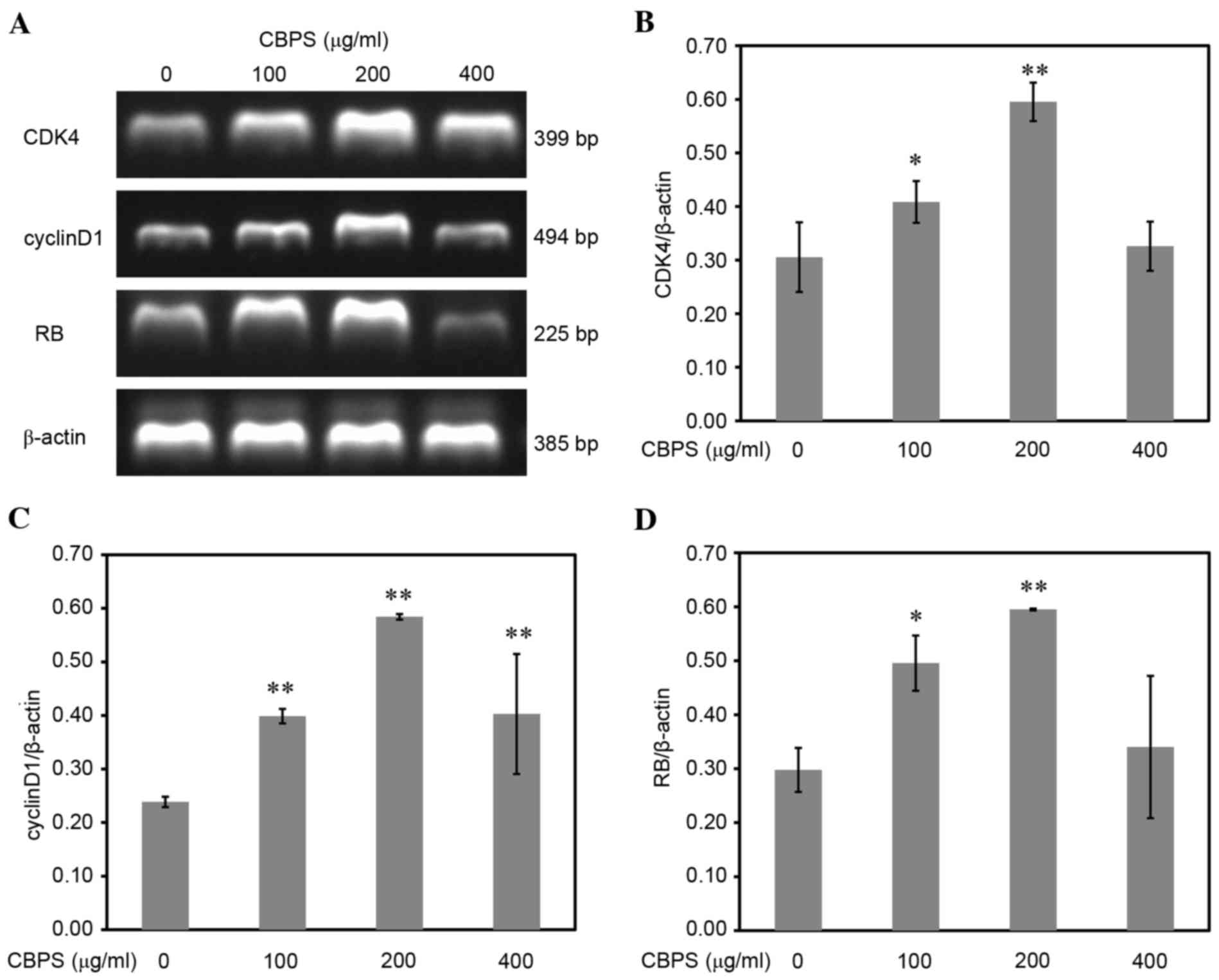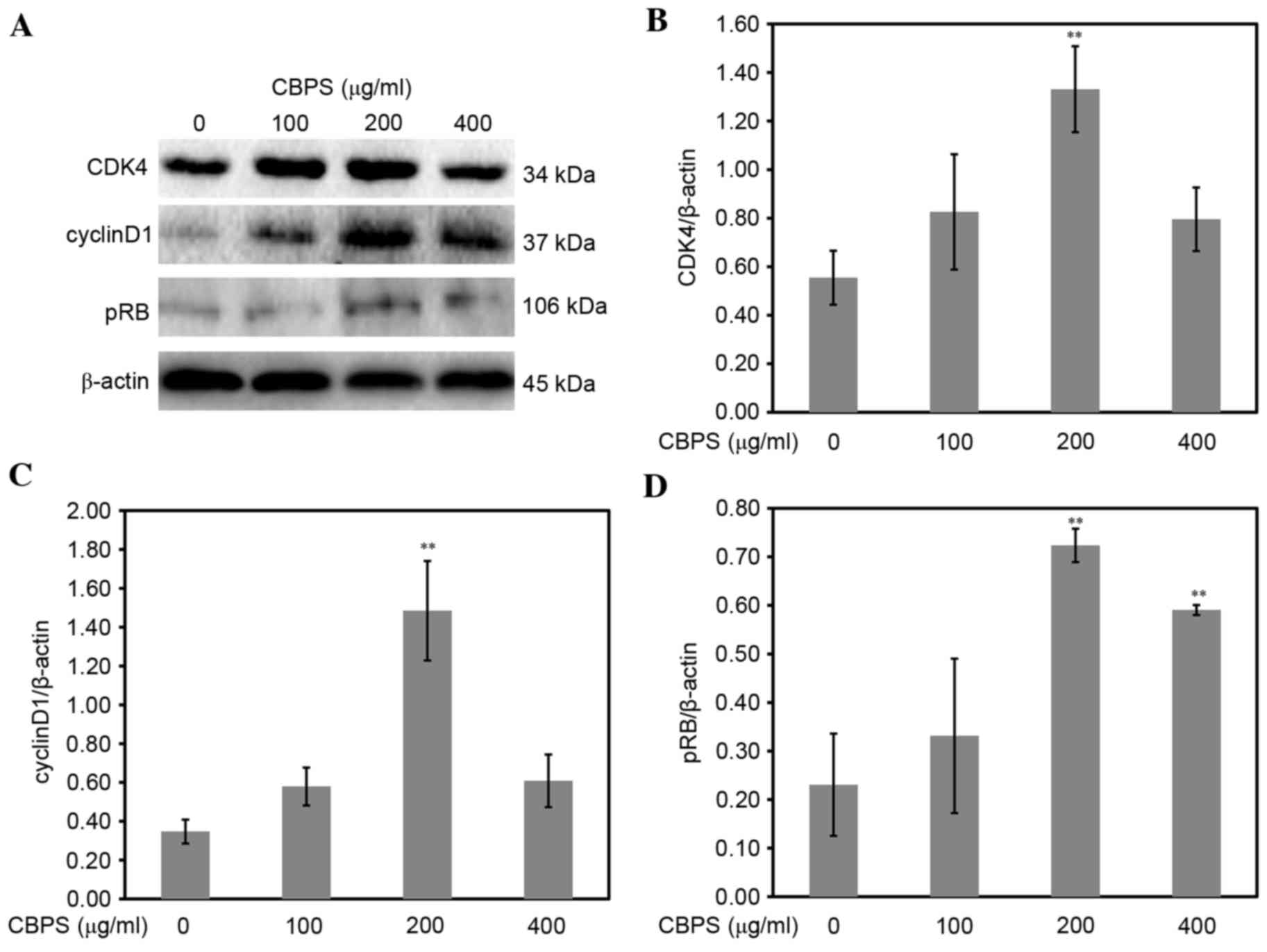|
1
|
Zhao XY, Yang ZB, Zhang ZJ, Zhang ZQ, Kang
Y, Huang GX, Wang SW, Huang H and Liao WM: CCL3 serves as a
potential plasma biomarker in knee degeneration (osteoarthritis).
Osteoarthritis Cartilage. 23:1405–1411. 2015. View Article : Google Scholar : PubMed/NCBI
|
|
2
|
Ham O, Lee CY, Kim R, Lee J, Oh S, Lee MY,
Kim J, Hwang KC, Maeng LS and Chang W: Therapeutic potential of
differentiated mesenchymal stem cells for treatment of
osteoarthritis. Int J Mol Sci. 16:14961–14978. 2015. View Article : Google Scholar : PubMed/NCBI
|
|
3
|
Lin P, Weng X, Liu F, Ma Y, Chen H, Shao
X, Zheng W, Liu X, Ye H and Li X: Bushen Zhuangjin decoction
inhibits TM-induced chondrocyte apoptosis mediated by endoplasmic
reticulum stress. Int J Mol Med. 36:1519–1528. 2015.PubMed/NCBI
|
|
4
|
Shi XL, Yao CX, Lin X and Feng Y: The
applications and research progresses of polysaccharide drugs. Chin
J New Drugs. 23:1057–1062. 2014.
|
|
5
|
Loh SH, Park JY, Cho EH, Nah SY and Kang
YS: Animal lectins: Potential receptors for ginseng
polysaccharides. J Ginseng Res. 41:1–9. 2017. View Article : Google Scholar : PubMed/NCBI
|
|
6
|
Li F, Wei D, Zhang J, et al: The effect of
Hedysari Radix polysaccharide on protein expression profiling of
human adenocarcinoma A549 cells in vitro. Pharmacology and Clinics
of Chinese Materia Medica. 4:54–59. 2014.
|
|
7
|
Fong YC, Yang WH, Hsu SF, Hsu HC, Tseng
KF, Hsu CJ, Lee CY and Scully SP: 2-methoxyestradiol induces
apoptosis and cell cycle arrest in human chondrosarcoma cells. J
Orthop Res. 25:1106–1114. 2007. View Article : Google Scholar : PubMed/NCBI
|
|
8
|
Woods A, Wang G and Beier F: Regulation of
chondrocyte differentiation by the actin cytoskeleton and adhesive
Interactions. J Cell Physiol. 213:1–8. 2007. View Article : Google Scholar : PubMed/NCBI
|
|
9
|
Golias CH, Charalabopoulos A and
Charalabopoulos K: Cell proliferation and cell cycle control: A
mini review. Int J Clin Pract. 58:1134–1141. 2004. View Article : Google Scholar : PubMed/NCBI
|
|
10
|
Aszodi A, Hunziker EB, Brakebusch C and
Fässler R: Beta1 integrins regulate chondrocyte rotation, G1
progression, and cytkinesis. Genes Dev. 17:2465–2479. 2003.
View Article : Google Scholar : PubMed/NCBI
|
|
11
|
Buxton PG, Hall B, Archer CW and
Francis-West P: Secondary chondrocyte-derived Ihh stimulates
proliferation of periosteal cells during chick development.
Development. 130:4729–4739. 2003. View Article : Google Scholar : PubMed/NCBI
|
|
12
|
Xu G, Pei QY, Ju CG, Zhang F and Jia TZ:
Detection on effect of different processed Cibotium barometz on
osteoblasts by CCK-8. Zhongguo Zhong Yao Za Zhi. 38:4319–4323.
2013.(In Chinese). PubMed/NCBI
|
|
13
|
Xu G, Sun N, Zhao MJ, Ju CG and Jia TZ:
Study on decoction's effect of different processed rhizomes of
Cibotium barometz on retinoic acid induced male rats osteoporosis.
Zhongguo Zhong Yao Za Zhi. 39:1011–1015. 2014.(In Chinese).
PubMed/NCBI
|
|
14
|
Cheng Q, Yang Z and Hu Y: Studies on the
chemical constituents of Cibotium barometz. Progress Pharmaceutical
Sci. 5:298–299. 2003.(In Chinese).
|
|
15
|
Ju C, Zhang Q, Yu H, Gao Q, Shi J and Jia
TZ: Determination of polysaccharides in Cibotium barometz and its
processed product from various cultivation locations. Chin J Exp
Trad Med Formulae. 24:46–48. 2011.(In Chinese).
|
|
16
|
Qiao DL, Zhao F, Huang HZ, Fan CC and Han
L: Ultrasonic-assisted extraction and in vitro antioxidant activity
of polysaccharides from Agaricus bisporus. Zhong Yao Cai.
35:1340–1347. 2012.PubMed/NCBI
|
|
17
|
Liu F, Liu G, Liang W, Ye H, Weng X, Lin
P, Li H, Chen J, Liu X and Li X: Duhuo Jisheng decoction treatment
inhibits the sodium nitroprussiate-induced apoptosis of
chondrocytes through the mitochondrial-dependent signaling pathway.
Int J Mol Med. 34:1573–1580. 2014.PubMed/NCBI
|
|
18
|
Yu F, Li X, Cai L, Li H, Chen J, Wong X,
Xu H, Zheng C, Liu X and Ye H: Achyranthes bidentata
polysaccharides induce chondrocyte proliferation via the promotion
of the G1/S cell cycle transition. Mol Med Rep. 7:935–940.
2013.PubMed/NCBI
|
|
19
|
Bijlsma JW, Berenbaum F and Lafeber FP:
Osteoarthritis: An update with relevance for clinical practice.
Lancet. 377:2115–2126. 2011. View Article : Google Scholar : PubMed/NCBI
|
|
20
|
Roush JK, Cross AR, Renberg WC, Dodd CE,
Sixby KA, Fritsch DA, Allen TA, Jewell DE, Richardson DC, Leventhal
PS and Hahn KA: Evaluation of the effects of dietary
supplementation with fish oil omega-3 fatty acids on weight bearing
in dogs with osteoarthritis. J Am Vet Med Assoc. 236:67–73. 2010.
View Article : Google Scholar : PubMed/NCBI
|
|
21
|
Ye J, Wu G, Li X, Li Z, Zheng C, Liu X and
Ye H: Millimeter wave treatment inhibits apoptosis of chondrocytes
via regulation dynamic equilibrium of intracellular free Ca(2+).
Evid Based Complement Alternat Med. 215:4641612015.
|
|
22
|
Boddohi S and Kipper MJ: Engineering
nanoassemblies of polysaccharides. Adv Mater. 22:2998–3016. 2010.
View Article : Google Scholar : PubMed/NCBI
|
|
23
|
Luo YK, Cheng Y and Feng YP: Chinese
Wolfberry Polysaccharide on the immune function of diabetes II
Rats. Information Trad Chin Med. 1:13–16. 2014.
|
|
24
|
Yao H, Gu LJ and Guo JY: Study on effect
of Astragali Radix Polysaccharides in improving learning and memory
functions in aged rats and its mechanism. Zhongguo Zhong Yao Za
Zhi. 39:2071–2277. 2014.(In Chinese). PubMed/NCBI
|
|
25
|
Zhang M, Xie R, Hou W, Wang B, Shen R,
Wang X, Wang Q, Zhu T, Jonason JH and Chen D: PTHrP prevents
chondrocyte premature hypertrophy by inducing cyclin-D1-dependent
Runx2 and Runx3 phosphorylation, ubiquitylation and proteasomal
degradation. J Cell Sci. 122:1382–1389. 2009. View Article : Google Scholar : PubMed/NCBI
|
|
26
|
Hossain MA, Park J, Choi SH and Kim G:
Dexamethasone induces apoptosis in proliferative canine tendon
cells and chondrocytes. Vet Comp Orthop Traumatol. 21:337–342.
2008.PubMed/NCBI
|
|
27
|
Aszodi A, Hunziker EB, Brakebusch C and
Fässler R: Beta1 integrins regulate chondrocyte rotation, G1
progression, and cytokinesis. Genes Dev. 17:2465–2479. 2003.
View Article : Google Scholar : PubMed/NCBI
|
|
28
|
Beier F and LuValle P: The cyclin D1 and
cyclin A genes are targets of activated PTH/PTHrP receptors in
Jansen's metaphyseal chondrodysplasia. Mol Endocrinol.
16:2163–2173. 2002. View Article : Google Scholar : PubMed/NCBI
|
|
29
|
Ye D, Chen C, Lin Z and Bai Y:
Meta-analysis on curative effect of dextrose prolotherapy for knee
osteoarthritis. J Jilin University (Medicine Edition). 41:612–618.
2015.
|
|
30
|
Reeves KD and Hassanein KM: Long-term
effects of dextrose prolotherapy for anterior cruciate ligament
laxity. Altern Ther Health Med. 9:58–62. 2003.PubMed/NCBI
|
|
31
|
Rabago D, Patterson JJ, Mundt M, Kijowski
R, Grettie J, Segal NA and Zgierska A: Dextrose prolotherapy for
knee osteoarthritis: A randomized controlled trial. Ann Fam Med.
11:229–237. 2013. View
Article : Google Scholar : PubMed/NCBI
|















